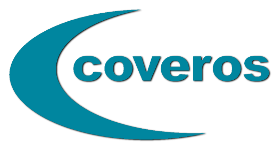Welcome back to the mini blog series on Facilitation Tips for Coaches. For those who are returning, you will remember that last time we kicked off this mini-series with the first tip: Embody the Agile Principle. I hope you were all able to learn something new and useful that you could start implementing in your teams.
Tip #2: Practice Emotional Intelligence.
Much of what we will be talking about in this post comes from Daniel Goleman’s theory of emotional intelligence that was first published in an article in 1999. In order to be a great facilitator and an advocate for the Agile team, one needs to be in tune with themselves. You cannot be a coach or a mentor to others if you don’t have control over your own emotions. It would be a clear example of the blind leading the blind.
Emotional intelligence starts with self and a basic ability to recognize one’s own emotions and how they affect your own behavior and how others are impacted by your behavior. Only after being able to recognize your own emotions are you equipped to manage and regulate those emotions to adapt to changing circumstances.
At the core of emotional intelligence are three aspects of self-awareness that need to be mastered.
- The first is emotional self-awareness which is where you are able to read and understand your emotions as well as recognize their impact on work performance and relationships.
- The second is accurate self-assessment, where you are able to provide a realistic evaluation of your strengths and limitations.
- And the third is self-confidence, where you have a positive and strong sense of one’s self-worth.
Once you have a basic level of self-awareness you can transfer this to social awareness and self-management, which together translate to better relationship management. In relationship management, one develops true empathy for others and becomes an effective servant leader and eventually a coach, change agent, and conflict mediator.
Let’s dive a little deeper into self-management and social awareness. There are five facets that come together and make up the idea of self-management.
- The first is self-control which at its core means that one is able to keep disruptive emotions and impulses under control.
- This works hand in hand with the second facet, adaptability which allows the individual to be flexible in adapting to changing situations and overcoming obstacles.
- The third is transparency which maintains standards of honesty and integrity and allows the individual to manage themselves and their responsibilities.
- This leads to achievement orientation which is the guiding drive to meet an internal standard of excellence and the fourth facet.
- And last but not least is initiative, which drives individuals to seize opportunities as they arrive and act upon them.
Similar to self-management, social awareness is made up of three ideas. The first is organizational awareness which is the ability to read the currents of organizational life, build decision networks, and navigate politics. In order to accomplish this, you need to have empathy, the second facet, which is the ability to understand others and take an active interest in their concerns and goals and objectives. This leads to the third facet which is service-oriented and it allows an individual to recognize and meet customer needs.
Bringing together self-management and social awareness leads to relationship management. The realm of relationship management is made up of visionary leaders who inspire and guide individuals and groups. These visionary leaders build strong relationships by influencing with integrity and they have the propensity to strengthen and support the abilities of those around them. They build strong bonds with others and are firm believers in teamwork and collaboration. Experienced facilitators and coaches live in the domain of relationship management. It is here where one has developed the ability to effectively manage conflict, affect organizational change, and successfully help teams to collaborate.
I believe that emotional intelligence is a critical step for anyone who is looking to coach or facilitate a group of individuals, but I am very interested in hearing your thoughts on the topic! How does emotional intelligence affect agile teams? Do you have any real-world experience with coaches or facilitators who practice good emotional intelligence? Stick around for the final blog on this mini-series. We will be discussing the last tip that I have for coaches and facilitators. In the meantime, if you are interested in more resources for training and coaching, check out training.coveros.com.



